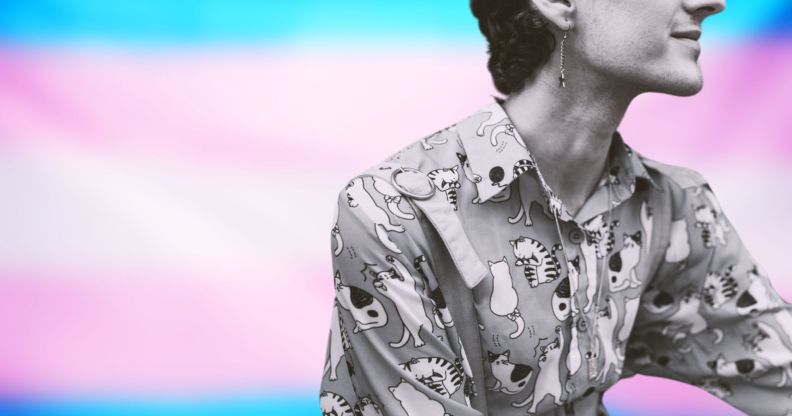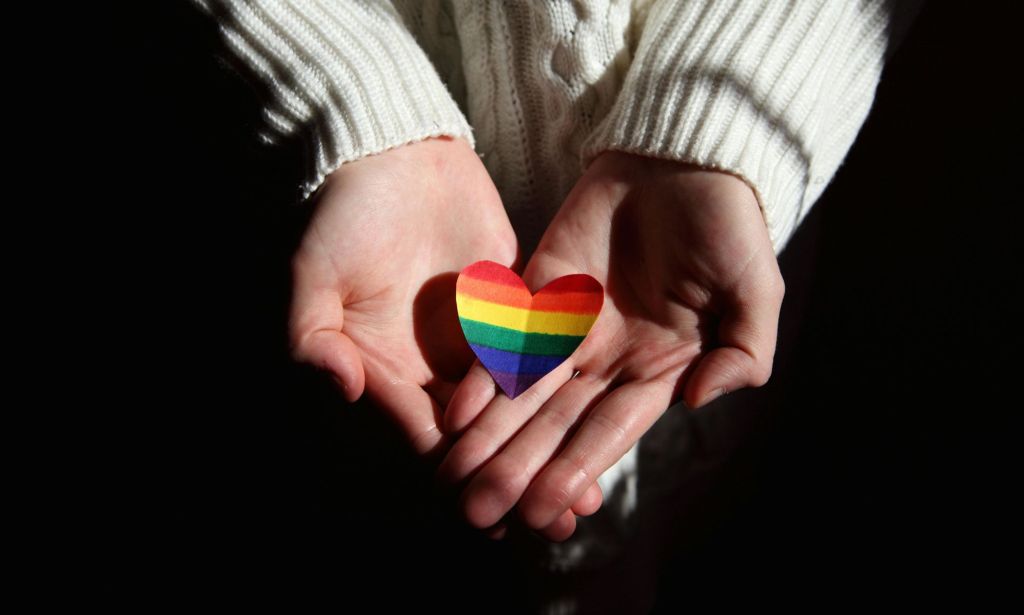‘Coming out as trans to my family was painful, but it taught me to love myself more’

“Through the help of my supportive friends and partner, I was shown the beauty of trans and butch masculinity,” said Just Like Us ambassador Mylo Castagnaro. (Pexels/Unsplash)
“Are you trans?” a cisgender guy I used to live with asked me last year in front of my friends. I remember thinking: “Yes, I am. So what?”
But faced with the invasive question, with this man outing me and forcing me to make a public decision about my identity, all I could do was stumble over my words and blurt out something along the lines of: “Maybe, not sure, I don’t know.”
It was as though my identity was somehow too shameful to announce. This was the final time I let other peoples’ judgment stand in the way of me being proud to be trans.
It took me a while to accept that I was transgender. Not because I wasn’t, but because I never thought I would be allowed to be. I grew up in Switzerland, in a Catholic Italian household, and my parents had been raised with outdated values that influenced their beliefs around LGBTQ+ issues – my mother more than my father.
I, however, gravitated towards traditionally masculine clothes, sports and toys, which didn’t fit with their expectations. Growing up, my family forced me to conform to Western ideas of femininity. My mother would buy all my clothes and didn’t allow any deviation from a feminine norm, which meant I couldn’t wear what I wanted until I started earning my own money at 21 years old.
I forced myself to embody this “feminine ideal”, perfecting my performance of “womanhood” and following what I was taught by the nuns at my school. I was even praised for it. How I felt about my gender identity didn’t matter as long as I was able to please those around me, seeking, in particular, my mother’s approval.
I admit, it did make me feel good when others complimented me for looking feminine or for a display of supposedly feminine traits. Even though it was so different from how I usually acted and who I was, my self-worth was heavily tied to external approval.
I continuously felt dysphoria, wishing I could appear more masculine. But from an early age the message was clear: who I was, was not OK.
At school, religion was used against people like me. I was taught to believe that only those who behaved well and conformed would go to heaven, and that included loving the body “God gave you.”
Just before moving to London to go to university, which I saw as an opportunity for a fresh start, I accidentally came out to my family as queer. I still remember the anxiety taking over my body and numbing me to what I had just admitted.
My dad and my brothers were nothing short of amazing and supportive. My mother, however, cried.
She cried for the future versions of me she had lost, versions of me she had invented and looked forward to. I left her with a version of me she knew she would never be able to accept to the fullest extent, because of how she grew up.
These are not my assumptions, these are her direct words that pierced my heart and left me feeling estranged from her for years – something that’s all too common for LGBTQ+ people.

It is difficult to narrow down a specific moment in time when my mother’s views shifted. There was no sudden epiphany or remorseful awakening. She didn’t wake up one day and apologise for her bigotry.
Even now, whenever I talk about my partner, I can sense her discomfort. A familiar awkwardness fills the space and, each time, I hold my breath, hoping something will change. But, sadly, my mother avoids the topic and rarely acknowledges my queer identity.
But being physically apart, in different countries, has given her time to understand who I am, and has helped her accept me more. Since my coming out, she has educated herself on LGBTQ+ issues, openly discussing them with me.
However, the main improvement in our relationship stems not from any particular awakening but from my own shift in perspective. I have gained a better understanding of who I am, loving myself more, and actively refusing to feed the narrative that external approval equates to my self-worth.
I am able to call my mother out when necessary, put healthier boundaries in place and demand she sees my queerness because I know I deserve as much. She is trying her best and I am thankful for it.
While we are in a much better place now, I still feel the pain of my younger queer self just wanting to be loved and accepted for who they are.
While living in London, I have immersed myself in a rich and loving LGBTQ+ community. I’ve had the opportunity to meet many trans and non-binary people, with whom I share similar experiences. It took years of unlearning shame and guilt to realise that I was trans too.
I was always taught that having a masculine body was wrong, so for a long time I didn’t dare come close to being myself. I was still grappling with my internalised biases that echoed memories of being called homophobic slurs by my peers when I was young.
However, through the help of supportive friends and my partner, I was shown the beauty of transgender and butch masculinity. I did not have to appease a cis-heteronormative masculine ideal to be valid in my masculine identity.
Being masculine, cutting my hair and changing my name and pronouns were met not only with acceptance but also admiration and celebration. It was the first time I realised I could be trans and happy.
I began the process of getting top surgery this year, having saved up enough money, and it marked the first step towards realising one of my biggest dreams. In many ways, it finally feels attainable to be my full authentic self.
Now, when I look back at the views I was raised around, I feel I am getting closer to being me and loving myself the way that my version of God wants me to be. The best way I can describe it is that it feels like coming home to myself. God just made a silly mistake, and now I am correcting it.
Mylo volunteers as an ambassador for Just Like Us, the LGBTQ+ young people’s charity. LGBTQ+ and aged 18 to 25? Sign up here!

